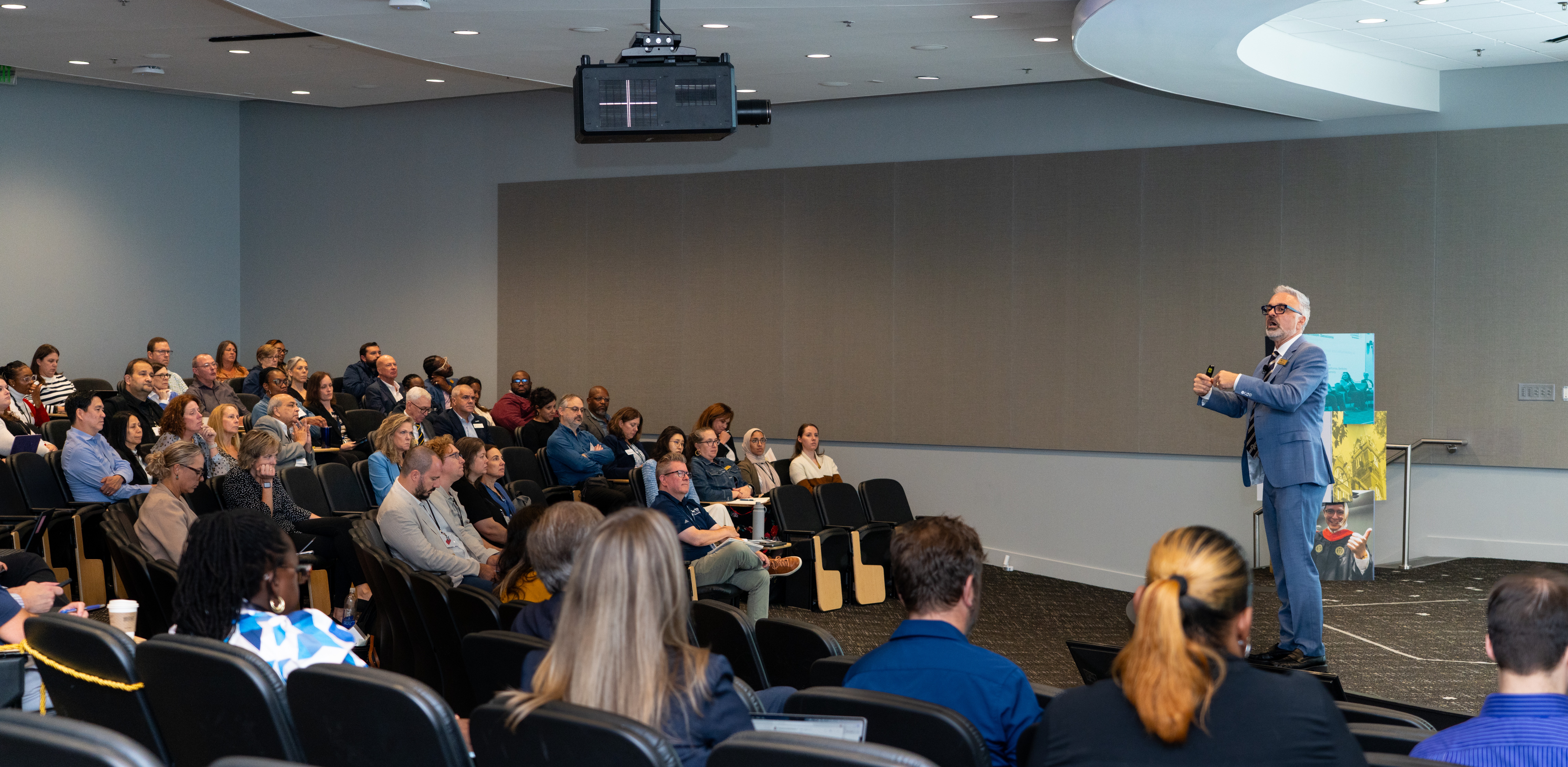
The 2025 Lifetime Learning Symposium opened at Georgia Tech with a call to reimagine education as a lifelong pursuit rather than a stage of life. Dean Bill Gaudelli of the College of Lifetime Learning challenged participants to move from a “learned society” to a “learning society,” connecting K–12, higher education, and workforce development into one adaptive ecosystem. The symposium’s sessions highlight global models, flexible credentials, and collaborative innovations that prepare learners and institutions for a century defined by change.
2025 Lifetime Learning Symposium Opens at Georgia Tech
The 2025 Lifetime Learning Symposium opened Monday at Georgia Tech with a forward-looking message: continuous learning is essential for everyone in the 21st century, which calls for reshaping the structure of education to meet the great social, economic and technological changes of the times.
In his keynote, Bill Gaudelli, dean of Georgia Tech’s College of Lifetime Learning, positioned lifetime learning as a strategic, interdisciplinary field that connects K–12, higher education and workforce development with the shared goal of lifelong access to meaningful learning.
He challenged an audience of educators, policymakers and industry leaders to consider three key questions: What is learning vs. education? What’s broken in the current system? And what is emerging?
“How do we adopt the mindset of a learning society, where everyone is engaged in learning from all points of experience?” Gaudelli asked. He contrasted this with the traditional model of a “learned society,” where an often elite group completes formal education.
He cited several challenges to the current system, including rapid technological change, an aging population and a new generation demanding flexible, responsive learning. These pressures, he said, contribute to low public trust in higher education and underemployment post-graduation.
“Our value proposition is meeting society’s needs in a way that’s timely, resilient and adaptable for learners in all contexts,” Gaudelli said. “We’re seeking partners across institutions to support this goal.”
Gaudelli highlighted education models from around the world, from experiential learning in Thailand that emphasizes social values to Georgia Tech’s new Flexstack program, which offers online, live technical instruction with stackable courses that learners select.
A panel of state and Georgia Tech leaders discussed the university’s Rural Computer Science Initiative, a partnership between government, schools and the university which has served about 10,000 high school students and supported CS teachers in 45 rural Georgia counties since 2022.
A second panel of industry and state leaders explored the risks and potential of digital credentials as alternatives to traditional degrees.
The symposium continues Tuesday and Wednesday, with sessions focused on expanding affordability, strengthening credential pathways and designing lifelong learning systems.